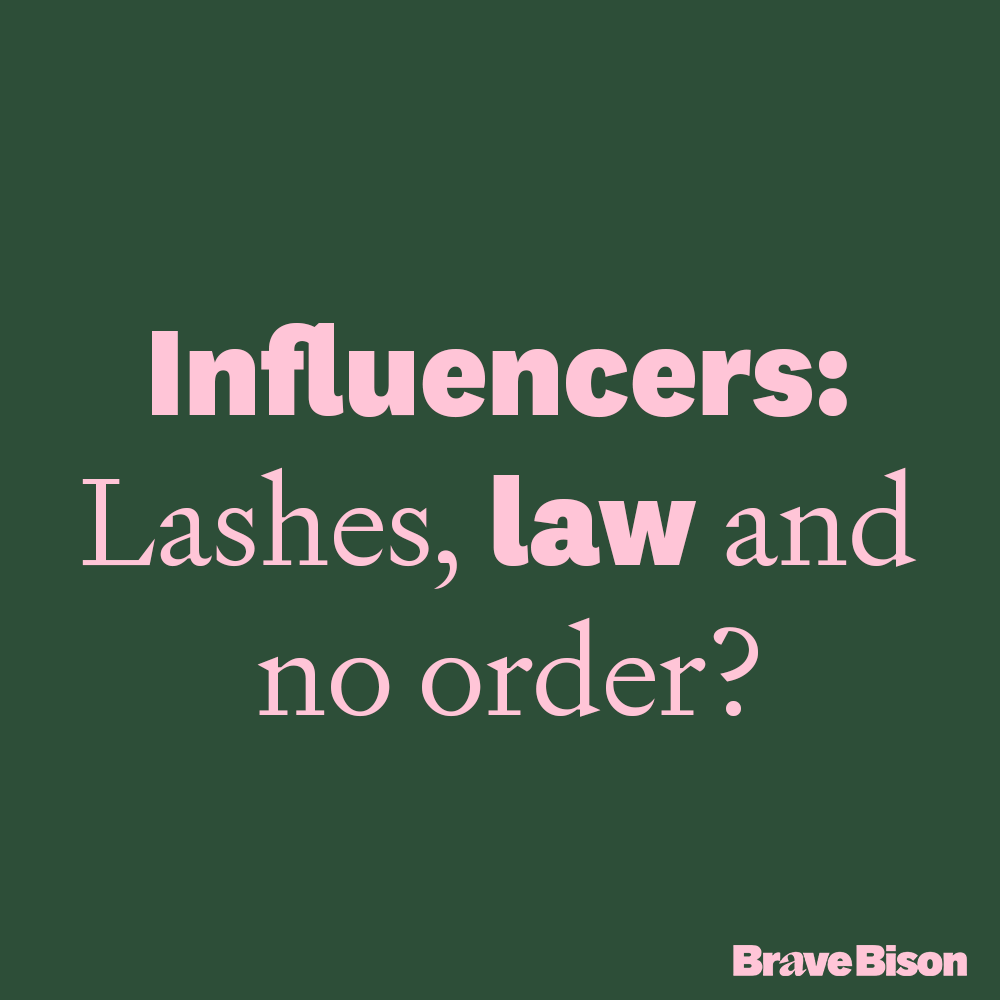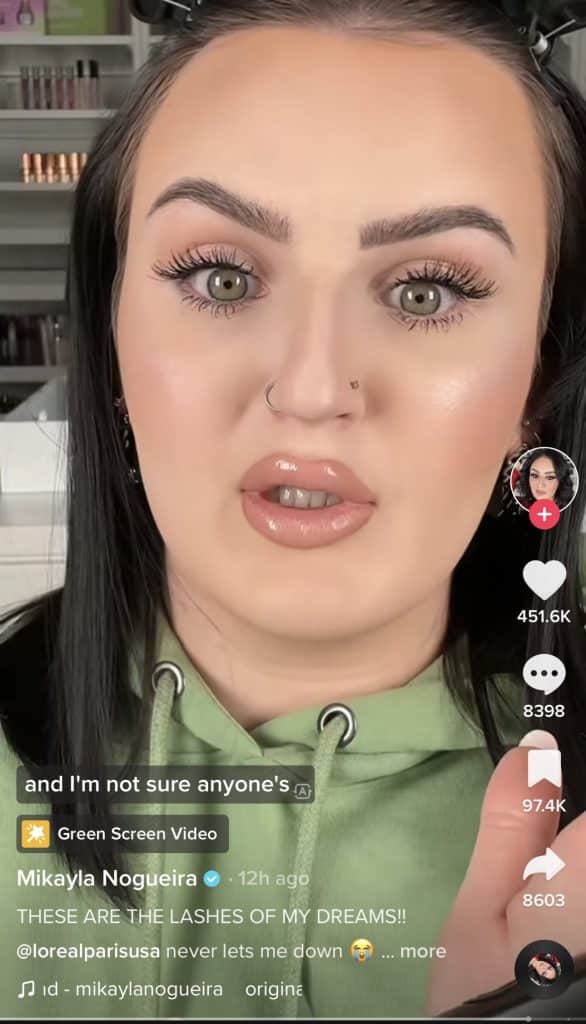
Do influencers care about the law anymore?
January 2023
When influencers run lawless what do we do?
Dani Dullaghan, our Social Media Strategist explores below:
Influencers, for when you can’t trust traditional advertising - trust them. But what happens when transparency is lost and laws are broken, how are we meant to believe anything they say?
That’s precisely what has happened within the beauty community when Mikayla Nogueira, a notable beauty influencer, was caught with her lashes down, so to speak.
In a recent video, Mikayla was seen raving about the L’oreal telescopic mascara that promised to give volume and length to lashes. But, it later turned out that she had applied false lashes before filming the video which has caused uproar online, and rightfully so.

I fought the law and the law won...
It's probably worth mentioning that, in the 2000s, the FTC passed a law that required advertisers to state if they were using false eyelashes in promotional material for mascara. This law was made to ensure that consumers were not being misled by advertisements.
The FTC guidelines apply to all forms of advertising, including television, print, and digital media. This includes social media platforms like Instagram, YouTube, and TikTok, where many beauty influencers promote sponsored products. However, the enforcement of these guidelines on social media platforms is not always consistent, and it is up to the platform to enforce them.
This incident brings to light a growing problem within the beauty influencer community- a lack of transparency. Many influencers are now being called out for their deceptive practices within sponsored advertising, such as using photoshop to edit their images or using fake tan or hair extensions to enhance their appearance. Some of them are also promoting products in which they are being paid for, but not disclosing that fact.
...or did it?
In the UK in 2022, The Advertising Standards Authority (ASA), had issued a final warning to 122 UK-based Instagram influencers over repeatedly failing to tell followers when they were paid to promote products in posts. Influencer and content creators have become more complacent in recent years as the size of the creator economy grows larger and more difficult to track.
It’s not only in the influencer's best interest to be transparent, but for the brands themselves to continue declaring when a product is sponsored. If creators lose their connection with their audience, they’ll become a discredited source of trust.
It’s not easy to create engaging sponsored content, but it can be done and done extremely well. For every influencer that is unethical, and takes the easy route out - there’s another influencer dedicated to making really great, engaging sponsored content that their users will actually want to watch.
We back honest influencers
Those trusted and transparent influencers will grow steadily, and have a very loyal and engaged following. They know they can be trusted, and their followers will continue to look to them for recommendations, products and inspiration.
By not declaring your sponsorship - you’re telling us you don’t care enough about your audience and you certainly don’t care whether this product actually works. For a brand, it’s the same. You don’t care about your customer, you just want sales on a product you’re not even sure works correctly yourself.
If you’ve nothing to hide, both brand and influencer - then why not be transparent about your sponsorship?
Ultimately, the brand and agency are final sign-off before any creator goes live with a piece of sponsored content. At Brave Bison, we are committed to only delivering ethical influencer campaigns that are engaging for the audience but are also compliant with all advertising regulations and laws.
Have a project you want to discuss, slide into our DM's.
